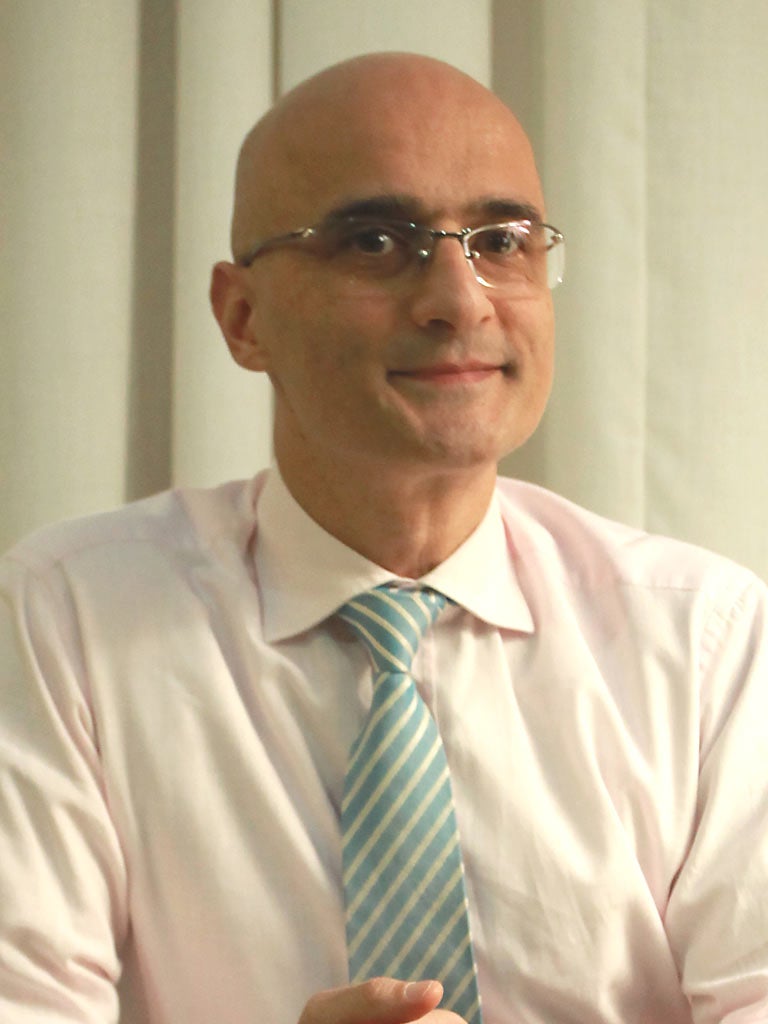Banker behind private hospital revolution pledges patient power

Your support helps us to tell the story
From reproductive rights to climate change to Big Tech, The Independent is on the ground when the story is developing. Whether it's investigating the financials of Elon Musk's pro-Trump PAC or producing our latest documentary, 'The A Word', which shines a light on the American women fighting for reproductive rights, we know how important it is to parse out the facts from the messaging.
At such a critical moment in US history, we need reporters on the ground. Your donation allows us to keep sending journalists to speak to both sides of the story.
The Independent is trusted by Americans across the entire political spectrum. And unlike many other quality news outlets, we choose not to lock Americans out of our reporting and analysis with paywalls. We believe quality journalism should be available to everyone, paid for by those who can afford it.
Your support makes all the difference.Every patient at Britain's first privately run NHS hospital will be asked to rate the medical treatment, food and personal care they receive – with feedback published on the internet on a weekly basis for the public to see.
Under plans to be introduced by the new operators of Hinchingbrooke Hospital, in Cambridgeshire, patients will be asked what parts of their treatment and stay could have been improved. The results will be published on the hospital's website. The hospital will also respond publicly to any criticisms.
Outlining his plans for Hinchingbrooke, Ali Parsa, chief executive of Circle Healthcare, said the system – already in place at the company's private hospitals – would help drive up standards. At present, no NHS hospital monitors or publishes patient satisfaction on a case-by-case basis.
Circle will take over the running of the loss-making hospital next year and claims it will radically alter the way it is run to improve standards.
But critics say Circle could end up putting profit before care and lead to the break-up of the NHS.
In an interview with The Independent, Mr Parsa said he would not be rushing to make changes – but in the longer term wanted to fundamentally change the philosophy of care.
He hopes to split the hospital into small groups of clinical teams.
"We are going to spend a lot of time turning the hospital into small units where people have ownership of what they do – so it's small enough that they matter within it. Then we are going to get the units to agree what their vision is – what is their plan?
"We need to make sure everybody who works in the hospital is serving that objective. It's amazing how quickly you discover that a lot of work people do in hospitals is around things which don't matter."
In a statement of intent which is likely to worry unions and some staff, Mr Parsa said his vision of hospital care was somewhere between a management consultancy firm like McKinsey and a manufacturer like Toyota.
"When I first joined Healthcare, I thought it was run in completely the wrong way – as a command economy with top-down management.
"I thought it should be run like a professional service company because doctors and nurses are professionals. What I've discovered is that I was wrong. Healthcare needs to be run like a professional services organisation but it also needs to be run like Toyota. Hospitals also run a gigantic number of processes like a factory. An operating theatre system is a process management system. The trick in management of healthcare is how do you mix the two?"
Mr Parsa said feedback was important to both sides of the mix.
"The transparency about how people feel about the place is vital," he said. "It makes people think about what's important – and that's how you improve care."
'My parents did something i still think was amazing'
Ali Parsa is an unusual hospital boss. An engineer-turned-banker, he had no involvement in healthcare before setting up Circle in 2005. He has since become the poster – and whipping – boy for private involvement in the NHS.
Mr Parsa arrived at Britain aged 16 from Iran, speaking no English but with fierce ambition. "In Iran they had shut down the universities and youth unemployment was massive," he said. "My parents did something I still think was amazingly courageous – they said your future means more than staying with us."
Mr Parsa said he spent the first two years at home studying for GCSEs and A Levels before going on to study at London University (he turned down Cambridge, unaware of its reputation). He went on to do a PhD in engineering – funding his studies by setting up his first company. When he came to sell it he realised how well investment bankers did from such transactions so decided it was a useful career path. He joined Goldman Sachs – which later backed Circle – and says that experience led him to branch out on his own.
Mr Parsa claims that the philosophy behind Circle is the difference between 'good' and 'great'. "My staff always tease me that when they come in and say 'it's 80 per cent there' I remind them that humans share 83 per cent of their DNA with a cockroach. The difference is the 17 per cent."
Join our commenting forum
Join thought-provoking conversations, follow other Independent readers and see their replies
Comments